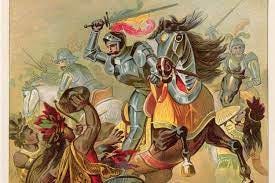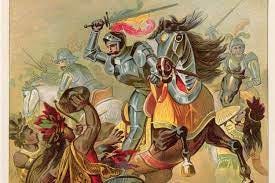I continue today with my discussion of conquest in human history and its role in providing foundation for the emergence of human civilizations that are advanced with respect to economic productivity, commerce, education, culture, and morality. Today I focus on the Western European conquests from 1492 to 1650 and their role in the emergence of the modern capitalist world-economy, drawing upon the Encyclopedia of Invasions and Conquests, hereafter referred to as Encyclopedia,1 as well as the work of Immanuel Wallerstein.2
The Encyclopedia sees the European conquests as pertaining to two distinct periods: the age of exploration, from 1450 to roughly 1650; and the age of empire, from 1750 to 1914. This is consistent with Wallerstein’s analysis, which defines four stages in the development of the capitalist world-economy.
The European conquests of the Age of Exploration
From the early 1440s to the end of the fifteenth century, the Portuguese s…



